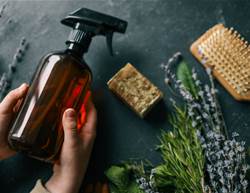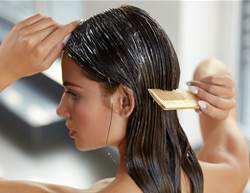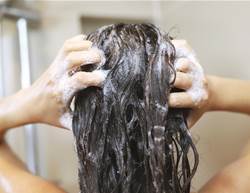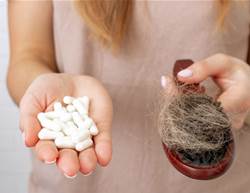Dandruff is common, but that doesn’t make it any less uncomfortable or embarrassing for those who struggle with an itchy, flaky scalp. Here, dermatologist Dr Divya Shokeen explains three effective treatments that can grant relief from the comfort of your home.
First, what is dandruff?
Dandruff is a scalp condition that manifests as white flakes on the scalp and hair. It is caused by various factors, including fungi such as Malassezia, hormonal imbalances, and certain skin conditions like psoriasis and eczema. Dandruff often occurs when the scalp's natural oil production is disrupted, leading to the growth of Malassezia.
How is dandruff typically treated?
Medical treatment for dandruff may involve over-the-counter shampoos, creams, and lotions containing active ingredients such as zinc pyrithione, ketoconazole, or sulfur. These help by reducing the growth of Malassezia and rebalancing skin cell turnover. For more severe cases, prescription medications may be required.
How can you treat dandruff naturally?
1. Tea Tree Oil
Tea tree oil has antifungal and antibacterial properties that help eliminate Malassezia, reducing scalp irritation and inflammation. A study published in the Journal of the American Academy of Dermatology found that tea tree oil was significantly more effective in treating dandruff than a placebo.
To use tea tree oil, mix a few drops with a carrier oil such as coconut or olive oil and massage into the scalp. Let sit for about 30 minutes before washing it off.
2. Aloe Vera
Aloe vera has antifungal properties that inhibit the growth of Malassezia, according to a study published in the BioMed Research International. It also soothes the scalp and reduces inflammation, making it ideal for sensitive scalps. To use aloe vera, remove the gel from the plant and apply it to the scalp. Let sit for an hour before washing it off with a mild shampoo.
3. Apple Cider Vinegar
Apple cider vinegar has been used for centuries as an all-purpose remedy due to its antibacterial properties. It is useful for dandruff as it helps balance the pH of the scalp, reducing Malassezia. It also clarifies the scalp, removing any build-up of hair products that may be causing dandruff.
To use apple cider vinegar, mix equal parts vinegar and water, then apply to the scalp. Let sit for about ten minutes before washing it off with shampoo.
Are there any side effects to these natural treatments?
Side effects are possible so it’s important to always do a patch test before you apply something to your entire scalp. Tea tree oil and aloe vera may cause allergic reactions or skin irritation, while apple cider vinegar can be drying.
These treatments also don’t have clinical testing so there is limited data on how fast or how effective they can be, but a few studies have shown improvement in two to four weeks of consistent use.
When should you see a doctor about dandruff?
If natural remedies do not work or if symptoms are severe or persistent, it may be necessary to see a doctor. A dermatologist can help determine the underlying cause of dandruff and prescribe more advanced treatment options such as prescription-strength shampoos or medications.
Seek medical attention if dandruff is accompanied by other symptoms such as itching, redness, or scaling, as these may indicate a more severe skin condition.










